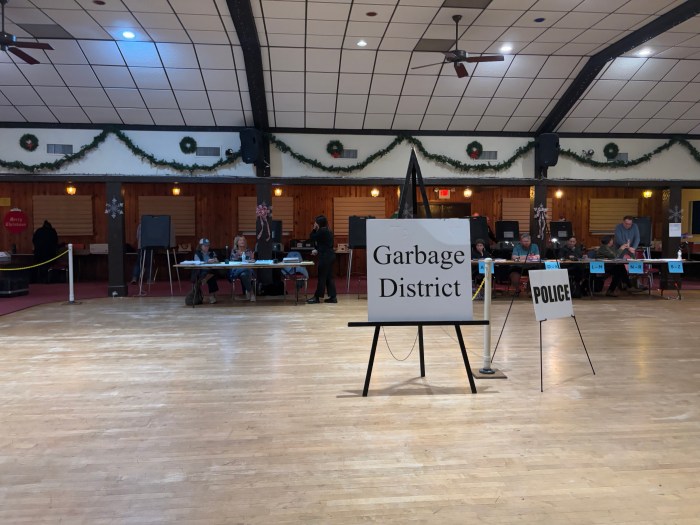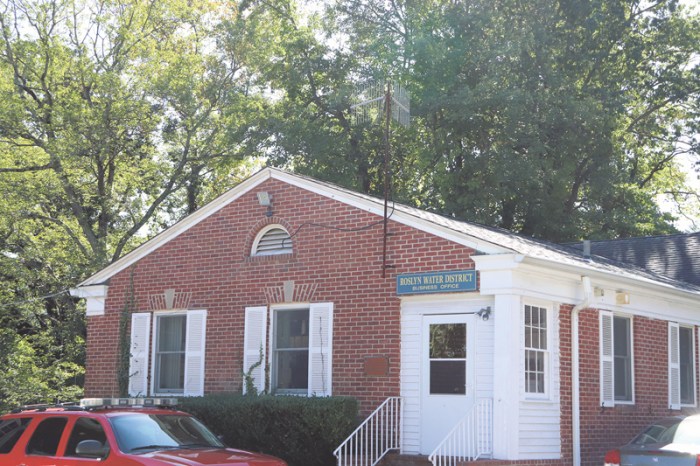The recent legislation signed by Governor Kathy Hochul to make changes to local election procedures has sparked a flurry of lawsuits from smaller jurisdictions all over the state. As detailed in the recent town meeting summary, the Town of North Hempstead has joined a lawsuit filed by the Town of Hempstead and other municipalities to prevent local, off-cycle elections to be moved to even-numbered years. This is in addition to, and separate from, a similar lawsuit filed by Nassau County. The town of Oyster Bay has retained council to explore the impact of joining the suit, but had not reached a conclusion as of press time.
Proponents of consolidating elections argue that it will save money, increase turnout, and allow a greater diversity of voters to participate.
“Every eligible New Yorker deserves the right to participate in the democratic process without unnecessary barriers,” Governor Hochul said. “By signing this legislation, we are taking a significant step towards expanding access to the ballot box and promoting a more inclusive democracy. This is a meaningful first step and I would support a constitutional amendment to align all election years, to save taxpayer dollars and avoid voter fatigue,” said Governor Kathy Hochul upon signing the bill. Governor Hochul also announced her support for a future amendment to the New York State Constitution that would align elections for offices not covered by this legislative action.
Of greatest concern seems to be the overreach by representatives in Albany. According to Democracy Docket, the County’s suit maintains that this law violates Article IX of the New York State Constitution, which gives local governments the authority to regulate all aspects of county government including when counties hold elections for local officials. Article IX also sets out rules for changing different classes of laws, which the suits claims have been violated.
Town officials participating in the alternate lawsuit echoed this concern. “The Governor’s plan to combine town and county elections, which are generally held on odd numbered years, with presidential and gubernatorial races, which are held on even numbered years, is an attempt by the Governor to wrest local control of government from the residents of the Town of Hempstead and place control in the hands of strangers in Albany. Obviously, local issues will receive little or no exposure to voters, being overshadowed by state and federal issues under the Governor’s plan. What’s more, the change would essentially double the length of the ballot, creating substantial confusion. The maneuver will also encourage voters to only vote in federal and state races, foregoing the effort to vote in the town and county races. Local governments must have control of local matters. The Governor’s plan is nothing more than an overreach,” said Brian Devine, director of communications for the Town of Hempstead.

The Town of North Hempstead addressed the issue of competing for attention with big-money campaigns. Town of North Hempstead Supervisor Jennifer DeSena said, “The reality is that local elections are shaped by local issues, and those issues receive fair attention in odd year elections. Those local matters and candidates would be buried by the millions upon millions of dollars spent by national and state campaigns in even years. There’d be no way for local races to distinguish themselves against the noisy backdrop of presidential, gubernatorial, senatorial, or even congressional races. Consider that Politico reported that $22 million was spent on ads for the recent special congressional race between Tom Suozzi and Mazi Pilip. How could candidates for a local office possibly compete with that? How could town concerns find their way to the top of that pile?
She continued, “worse still, in some places even year elections would result in ballots that could be twice as long and might include up to 30 races. That’s a logistical nightmare. We know that lengthy ballots result in voter drop off for down-ballot races, because people simply don’t pay as much attention to those smaller races. That’s a disservice to an informed electorate, not a help,”
The Town of North Hempstead’s position is that the premise that this law does away with odd year elections and saves money is a fallacy. School boards and special districts are exempt. The law does not apply to village elections, or races for county clerk, sheriff, district attorneys, or local judges. Cities both large and small, such as Buffalo, Glen Cove and Long Beach, are also exempt.
“If voter turnout was the motivation why would cities like New York be exempt, where voter turnout is notoriously low? Clearly, this law is specifically targeting county and towns. So, the obvious question is, ‘Why?’ There was no town and county outcry for this legislation, so why was it enacted now?” Said Umberto Mignardi, public information officer for the Town of North Hempstead.
Many of the offices that are exempt from this legislation are among the group that would require a constitutional amendment to change.
One concern residents have repeated often is the cost to the taxpayers, since both the county and the town are now suing to halt this change. The Town has stated that no additional funds would be needed for this action and that the cost will be covered in the town attorney’s existing budget.
The Town maintains that their elections have characteristics and issues that are unique to North Hempstead. The jurisdictional differences between levels of government are distinct and many of the policies that affect daily life like property taxes, education, local infrastructure, parks and water quality are decided by local elections. The Town is concerned that these issues will be obscured by state and federal politics. The town-wide council districts were established after a public referendum in November of 2003 and then added to the local election schedule as part of an overall effort to increase voter participation. They feel it is not acceptable that 21 years later those decisions should be undone by decree from Albany.
“At its core, this is a home rule issue. And at a time when most people want their towns to be free from the ugly divisiveness of federal and state politics, this law deliberately drags us into it,” said Supervisor DeSena.




























